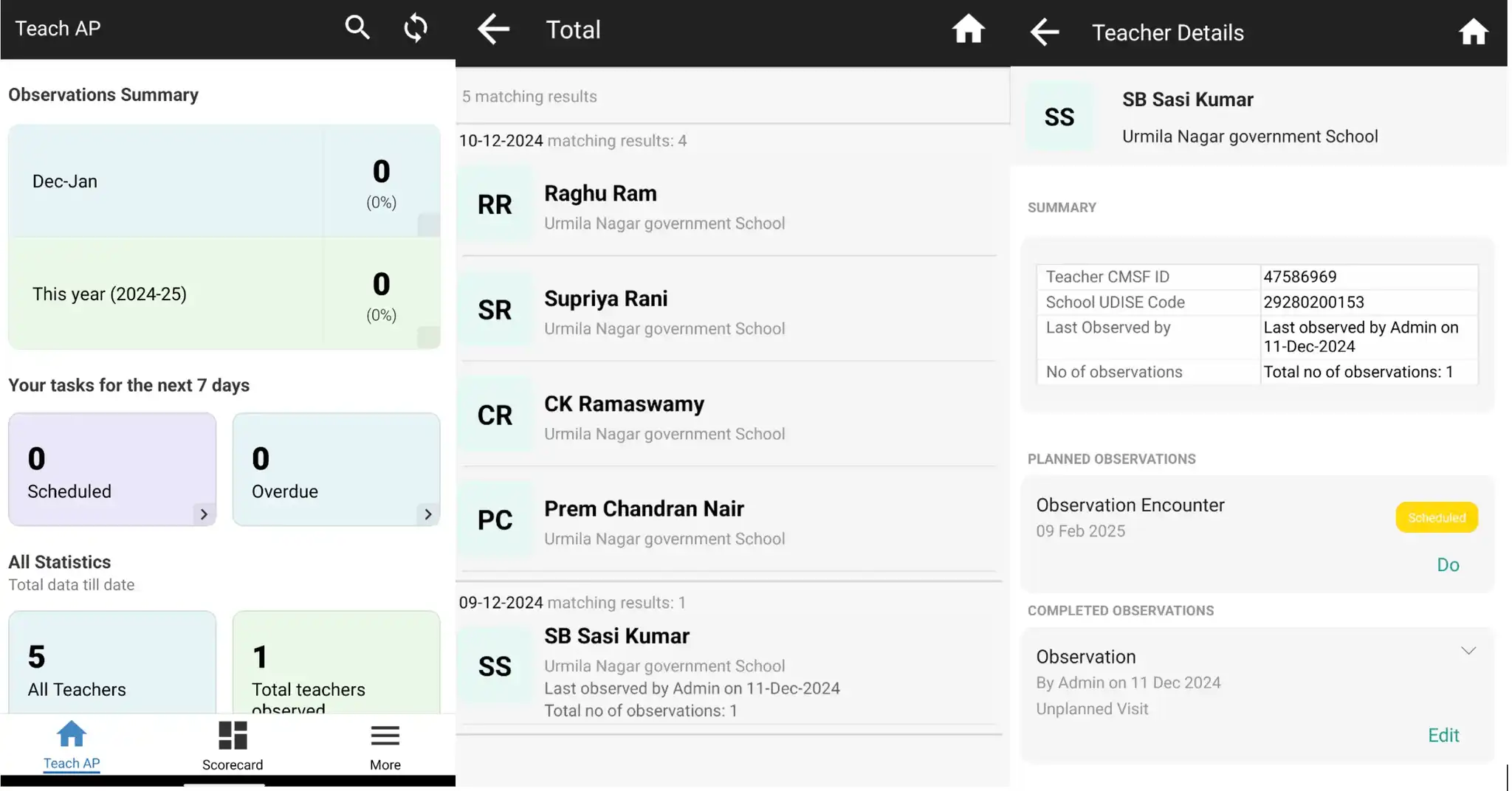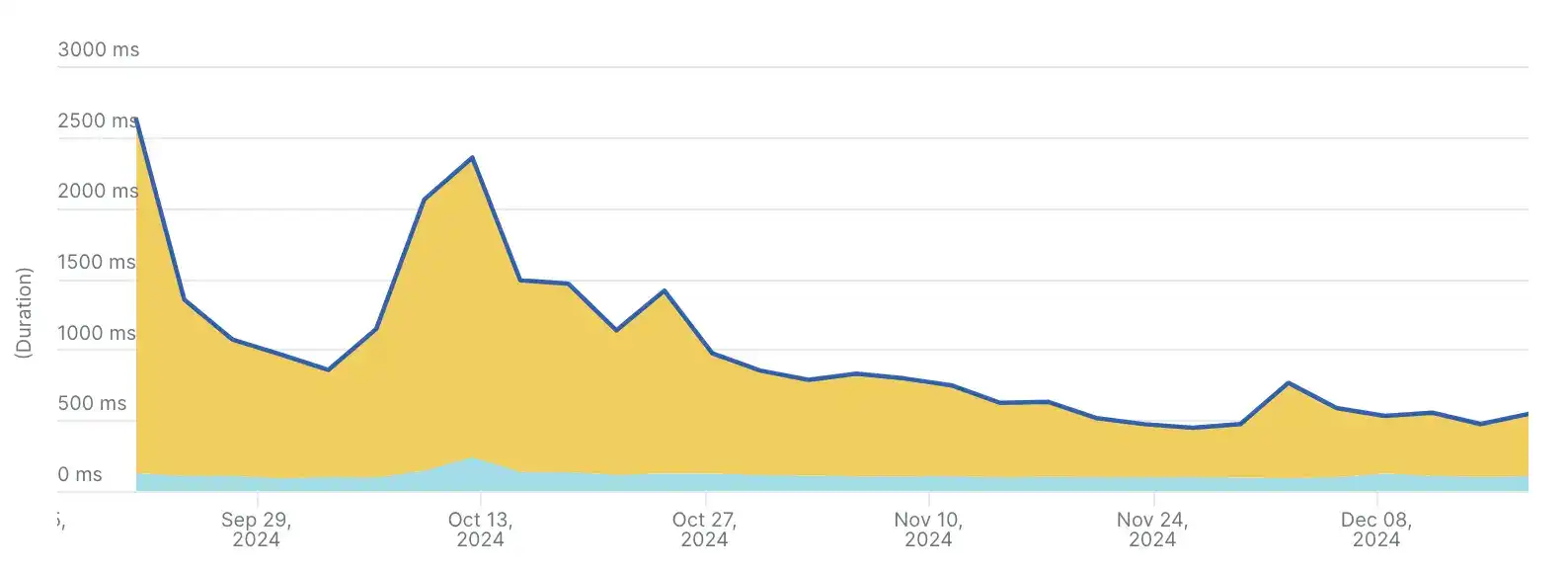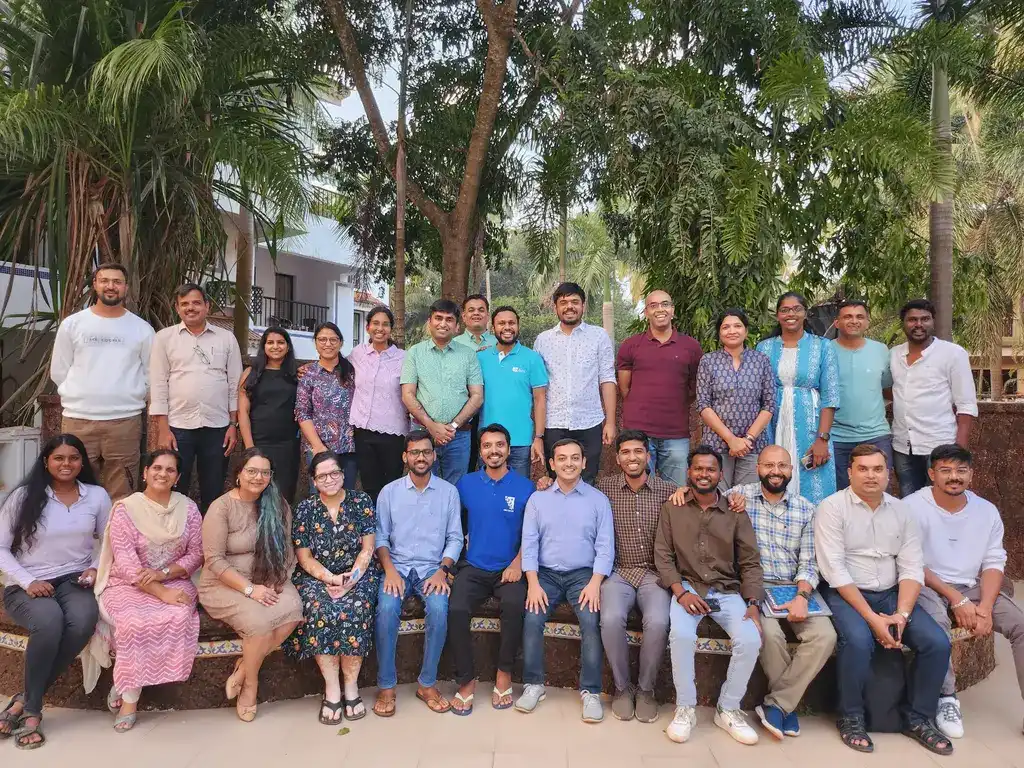Avni in 2024
December 20, 2024 by Avni Team
A review of Avni in 2024
As the new year dawns upon us, we take a glimpse at what happened over the past year to ruminate, retrospect and to find new ways of imagining what could be in store in the future.
Highlights of the year
Rejuvenating Water Bodies project expansion
The water body rejuvenation project with ATE Chandra Foundation has been using Avni since 2019. Due to the size of the project, we moved out the project to its own infrastructure. This came with a new shiny app - Avni Gramin. A new chatbot based helpdesk was developed on Glific, and a dashboard was added through Dalgo, utilizing multiple discrete open source technologies to provide a powerful experience. More than 2 crore cubic meters of silt was excavated through the program, impacting 5000 farmers and indirectly impacting around 10 million people. Read Kanika Thanawala’s blog on India Water Portal for more details.
We also provided dedicated L1 support personnel for this project. Having dedicated personnel and infrastructure helped quite a bit this year by providing a stable environment and sufficient support for the different activities that are normal during a project of this scale.
Teach Digitisation project handover
The Teach digitisation project in Andhra Pradesh was handed over to the state government in 2024. Observations have started flowing into the government infrastructure with the new academic year. The state government adopted and is operating open source technology on its own.
Teach is also being adopted by the Nagaland government without having to deal with any extra paperwork. This is a testament to the power of open source in government.
As part of this project, we also partnered with Koita Foundation to improve the user experience of the platform. The new user experience also comes with several improvements to the platform experience on the Android app. There are now options to have more than one dashboard on the home screen, structure changes in the way search results are shown, the ability to hide unnecessary pieces of information on the subject dashboard and the ability to control colours on the dashboard cards.

Digital Public Good registry entry
The Digital Public Goods Alliance is a multi-stakeholder UN-endorsed initiative that facilitates the discovery and deployment of open-source technologies, bringing together countries and organisations to create a thriving global ecosystem for digital public goods and helping to achieve the sustainable development goals.

Avni was added to the Digital Public Goods Registry in February 2024.
Project Potential - Rollout of self-service and training
In the latter half of the year, we started noticing several NGOs who had the need for Avni but were not able to afford the one-time implementation cost. These were mostly simple implementations where digitisation can change things significantly. There were also situations where NGOs who have been using Avni for a long time and wanted to roll out new projects on their own.
On the other hand, some existing Avni users have pioneered self-service on their own. Institute of Public Health, Ashwini, Shelter associates, Jan Swasthya Sahyog and Swadhar (through Shelter) have been making modifications, adding new programs and utilising self-serviceability to the best extent possible.
This led us to work on improving the accessibility of Avni to new people to achieve better adoption. What this means in practice is that we will Introduce Avni training to those who would want to implement Avni by themselves in their organisations Improve the ability of Avni to make it simpler for self-service Seek out organisations who can benefit from Avni and help them with adoption
Four organisations have been trained on Avni till date, and two projects have gone live. Ashok from Project Potential has written about his experience here. Project Potential also talked about their programme and the use of Avni in our December Monthly meetup.
Community
Avni Conference 2.0
The Avni conference is an annual affair where the development team and users of Avni get together. This facilitates in-person connections between PoCs from NGOs and the Avni team, allows discussions on the Avni product features and roadmap for the year and promotes collaboration opportunities among NGOs. The second edition of the Avni conference was held in Goa in January 2024.
Newsletter and community meetups
In June 2024, we also launched a monthly newsletter and regular community meetups. While the newsletter has helped us chronicle the journey of Avni, the monthly meetups, especially the NGO spotlight helps us understand our NGOs better and create a corpus of knowledge on how technology is being used in the field, the overall experience of using Avni and the benefits customers see with digitization. We hope this will be useful for other NGOs who are starting their digitisation journey. All monthly community meetup recordings are available in the Avni Youtube channel.
C4GT
This is the second time Avni participated in the Code4GovTech’s dedicated mentorship program. The program provides mentorship to build for digital public goods. Om Bhardwaj and Shraddha Singh contributed to the project through the program. While Om built automated dashboards on Metabase for Avni to reduce effort involved in building these for every new organisation, Shraddha built mechanisms to compare different bundles, which will help in ensuring the right changes are applied whenever a bundle is uploaded.
Other events
Other notable activities include presenting about dashboards and visualisation at the CMS/CSI event, about Digital Public Goods at IIT Ropar (presentation here), the team retreat at Vama retreat near Nandi Hills, a talk on Open Source for Nonprofits organised by Nasscom Foundation (presentation here) and a bunch of field visits (read blogs here, here and here).

App Rollouts
While we expected to have a lot more new implementations this year, the actual number has been slightly lower. In the later part of the year though, we are seeing higher interests in Avni implementations
2024 saw repeat work from existing NGOs including ATE Chandra Foundation, Leadership for Equity, Azim Premji Foundation, Jan Swasthya Sahyog and Goonj. These were either significant modifications in the process or addition of new programs.
New program rollouts happened for CInI, Hasiru Dala, Animedh Charitable Trust, Jashoda Narottam Public Charitable trust (Adolescent program), Uninhibited and Project Potential. We have also started implementation work with MLD Trust, Peepul, Jal Jeevan Mission and Centre for Social Justice.
Product capabilities
Over the course of the year, the mobile app has become slightly prettier and a lot more configurable, thanks to the UI changes, addition of audit information and the work on custom dashboards. The dashboard section in particular has gone through a complete overhaul to add a lot of standard dashboard cards and filters, and the ability to pin multiple dashboards on the home screen.
The data entry app now works based on the catchment of the logged in user. It has better parity with the mobile app (support for question groups, subject and media concepts) and is much faster than before.
Performance improvements have happened on the server too, bringing down average response times significantly.

There has been quite a bit of work on the stability of different parts of the system and upgrades to critical technologies including upgrade of React, postgres, Metabase, Java and Superset. Overall we noticed better stability in the system - lower bugs and incidents, which is generally good.
Two consistent areas of work identified for the next year is to make Avni more newbie friendly and to provide more out of the box functionality. Some work is going on right now to make csv uploads easier and automation of standard dashboards.
The road ahead
We are excited about a few projects that we just signed up on as well. With the Centre for Social Justice, we are trying to see if legal case management for paralegals can be done through Avni. We are working with Jal Jeevan Mission to collect data from schools around water quality using field testing kits in Assam. A pilot was conducted around August, and a live implementation might go in soon.
While all of these are big projects, we still want to stay focused on our journey towards self-service. We want to move further towards making Avni more newbie friendly and self-serviceable. This will include working on simplifying the product, improving product awareness, and easier onboarding experiences.
Signing off. Let’s meet in 2025.
Tags

